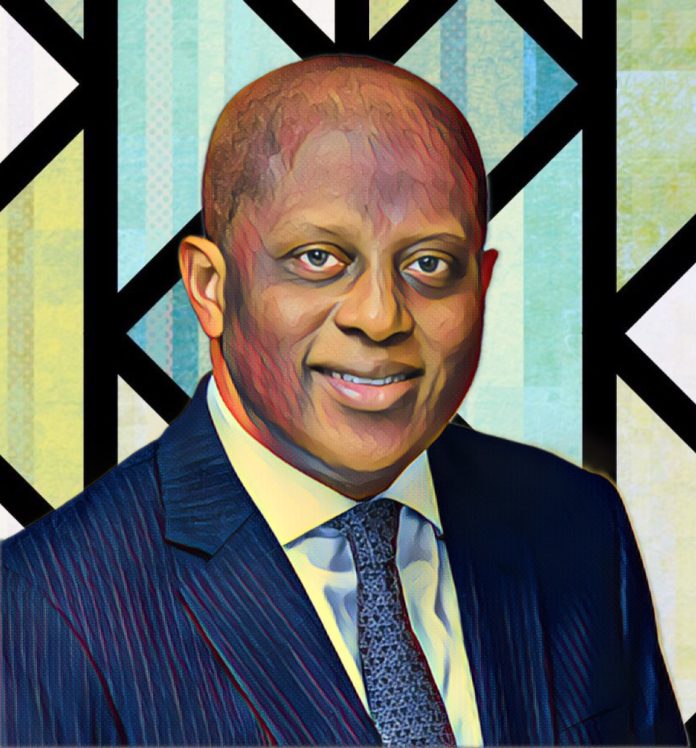As 2024, a leap year, unfolds, the focus is increasingly on Nigeria’s leading technocrats, industrialists, and entrepreneurs. There is a growing expectation for these influential figures to utilize their corporate governance policies and strategic action plans effectively. The goal is to catalyze a significant economic transformation, propelling the nation from a state of austerity to one of prosperity. This period presents an opportune moment for these key players to demonstrate their capability in steering the economy towards sustainable growth and development.
Dr. Yemi Cardoso, CBN Governor
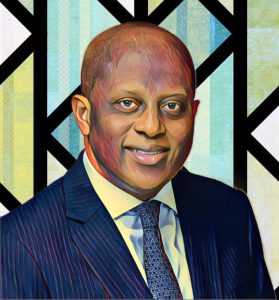
Dr. Yemi Cardoso, as the Governor of the Central Bank of Nigeria (CBN), finds himself in a challenging position. Tasked with steering Nigeria’s monetary policy, he is at the forefront of efforts to alleviate the multi-dimensional poverty affecting the nation’s citizens.
Upon assuming his role, Dr. Cardoso acknowledged the complexity of Nigeria’s economic challenges, emphasizing the lack of quick fixes and the necessity for difficult but essential measures to achieve economic stability and growth.
The Nigerian populace, grappling with escalating hardship, views the situation with growing apprehension. Despite the government’s assurances, living conditions have become increasingly strenuous, prompting calls for more compassionate economic policies from the CBN and other government entities.
Dr. Cardoso is navigating not only domestic economic challenges but also global market volatilities that have been exacerbated by sudden shifts in monetary policy. These changes have contributed to significant economic instability.
President Bola Tinubu’s decision, announced in his inaugural address on May 29, 2023, to end the petrol subsidy regime without implementing mitigating measures, has placed additional pressure on Dr. Cardoso. This decision, alongside the controversial naira float policy, has led to the naira’s significant depreciation, reaching a historic low of N1,043.09 to the dollar in the official foreign exchange market. Concurrently, inflation has surged, peaking at 28.20% in November 2023, largely driven by soaring food prices.
The repercussions of these policies are evident in the skyrocketing cost of food and other goods, further diminishing the naira’s value and plunging many into deeper poverty. Compounding these issues, the country faces an increasing sovereign debt, now at N87.91 trillion, alongside renewed terrorism threats, declining food production, and the recent cash scarcity crisis.
Amidst these challenges, there is skepticism about the feasibility of Dr. Cardoso’s ambitious goals, such as transforming Nigeria into a $1 trillion GDP economy, particularly when experts are predicting an even harsher economic climate in 2024.
Despite these daunting challenges, Dr. Cardoso remains optimistic. He has indicated that strategic initiatives are being refined in collaboration with the fiscal policy authorities. These plans aim to rejuvenate the economy by ensuring adequate foreign exchange availability and other growth-inducing incentives.
Dr. Cardoso views the current economic difficulties as necessary and corrective measures, painful in the short term but expected to yield transformative long-term benefits. His approach and policies in the coming months will be pivotal in determining Nigeria’s economic trajectory and the well-being of its citizens.
Wale Edun, Finance Minister
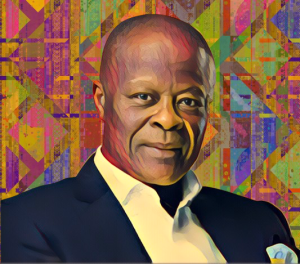
Wale Edun, serving as Nigeria’s Finance Minister and Coordinating Minister of the Economy, faces intense scrutiny and criticism from a populace demanding more tangible results than rhetoric. His role as the primary architect of the nation’s fiscal policy has come under fire, with accusations of excessive political influence overshadowing the needs of the masses.
Under Edun’s stewardship, there are growing concerns about the effectiveness of his strategies to alleviate poverty. The reality, as perceived by many, seems to be a trajectory toward prolonged economic hardship, rather than the promised upliftment. This sentiment is fueled by the struggles of small and medium-sized enterprises (SMEs), many of which have ceased operations amid an increasingly hostile business environment characterized by high taxes, levies, decaying infrastructure, escalated energy costs, and discriminatory tariffs.
The government’s promises of palliatives to mitigate the harsh impacts of subsidy removal have been met with skepticism. Described by some as mere illusions, these measures are seen as insufficient in addressing the acute economic challenges faced by the populace.
Adding to the public discontent, numerous workers reported not receiving their salaries in time for the Christmas season, casting a shadow over what is traditionally a period of celebration and joy. This delay in salary payments has further exacerbated the perception of a deteriorating economic landscape under Edun’s administration.
Despite the mounting criticism and challenging circumstances, Minister Edun remains optimistic. He assures the nation that the current difficulties are part of a transitional phase and that the situation will improve as Nigeria navigates through these turbulent times. His message to the citizens is one of hope and resilience, emphasizing that the journey toward economic stability and growth, though fraught with challenges, is on course.
As the nation looks forward, Edun’s policies and actions in the upcoming period will be crucial in shaping Nigeria’s economic future. The effectiveness of his strategies in bringing about the promised economic revival and in alleviating the hardships faced by Nigerians will be key in restoring public confidence in the government’s economic management.
Mele Kyari, GCEO, NNPCL Limited

Mele Kyari, as the Group Chief Executive Officer of the Nigerian National Petroleum Company Limited (NNPC Limited), is at the helm of navigating the country’s energy sector through a critical phase. His role is pivotal in addressing the local consumption demands for petroleum products, a task growing increasingly challenging amid the country’s complex energy dynamics.
The discontinuation of the subsidy regime has not alleviated the concerns regarding the periodic scarcity and exorbitant prices of key petroleum products such as petrol, diesel, and aviation kerosene. This situation has kept the spotlight firmly on Kyari, with expectations high for him to unravel the energy conundrum and alleviate the burdens borne by Nigerians.
In a promising development, Kyari has announced that the once-dormant refineries are set for revival, starting with the Port Harcourt Refinery, which achieved mechanical completion in late December. The refinery is anticipated to commence full-scale operations in 2024, marking a significant step towards self-sufficiency in petroleum product production.
The reactivation of government-owned refineries, coupled with the contributions from modular refineries operated by private entities, is expected to play a crucial role in resolving the ongoing energy scarcity issues. This integrated approach is seen as vital in stabilizing the availability and pricing of petroleum products in the domestic market.
Additionally, there is an expectation for Kyari, in collaboration with other key stakeholders, to address the persistent challenges surrounding the availability and cost of cooking gas in 2024. The issue of cooking gas scarcity and high prices has been a significant concern for Nigerian households, and effective solutions are eagerly awaited.
The responsibilities and challenges facing Kyari in 2024 are substantial, encompassing not only the stabilization of the petroleum products market but also the broader goal of ensuring energy security for Nigeria. As the nation looks towards a future of greater energy independence and stability, Kyari’s strategies and actions will be critical in shaping the trajectory of Nigeria’s energy sector and in meeting the expectations of its citizens.
Heineken Lokpobiri, Minister of State, Petroleum Resources (Oil)
Heineken Lokpobiri, serving as the Minister of State for Petroleum Resources (Oil), is deeply immersed in the mission to rejuvenate Nigeria’s oil sector. His role involves a relentless commitment to improving the nation’s crude oil production, a task he approaches with the vigor and determination of an undercover detective. Lokpobiri’s days are often filled with rigorous inspections of refinery repairs and strategic discussions with host communities in the oil-rich creeks, focusing on curbing petroleum infrastructure vandalism and boosting crude oil output.
For Lokpobiri, the primary focus is clear and singular: significantly increasing “crude oil production, production, and production.” This mantra underscores his dedication to enhancing Nigeria’s oil output, a critical component of the country’s economy.
However, the Nigerian populace is keenly observing Lokpobiri’s actions, anticipating tangible results from his leadership. They are particularly expectant about his commitment to ensuring the operational restart of the Port Harcourt Refinery, which he promised would happen “after Christmas.” This development is eagerly awaited, as it symbolizes a crucial step towards addressing Nigeria’s longstanding energy challenges.
Furthermore, Lokpobiri has publicly stated the federal government’s objective to escalate crude oil production (including condensate) from the current level of 1.7 million barrels per day (mbpd) to 2 mbpd by December. As this goal remains unfulfilled, there is growing anticipation and pressure for its realization.
In essence, Lokpobiri’s role is pivotal in navigating Nigeria through its energy crisis. His promises and strategies are under scrutiny, with the Nigerian public eager for the successful implementation of these plans. The successful revival of the Port Harcourt Refinery and the achievement of the increased production target are not only critical for the nation’s economic stability but also serve as key indicators of Lokpobiri’s effectiveness in his ministerial capacity.
Ekperikpe Ekpo, Minister of State, Petroleum Resources (Gas)
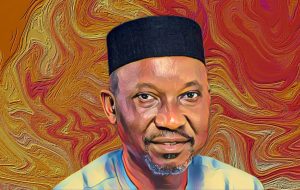
Ekperikpe Ekpo, Nigeria’s Minister of State for Petroleum Resources (Gas), faces a pressing task in 2024: addressing the persistent scarcity of cooking gas, a critical issue for countless Nigerians. With the increasing unaffordability of kerosene and the government’s intent to pivot towards gas as a key transitional fuel, the demand for accessible and affordable cooking gas has surged, becoming a central concern for households across the nation.
However, the reality of high costs and continual shortages of cooking gas has become an unbearable burden for many. The situation calls for immediate and effective solutions, and there is a growing expectation for Minister Ekpo to take decisive action. While establishing a committee to investigate the issue is a step forward, the public is eager to see more comprehensive measures. They urge Ekpo to conduct a thorough examination of the entire gas production and supply chain, identify existing gaps, and implement strategies to bridge these gaps effectively.
Amidst these challenges, there is a sense of frustration among Nigerians over the government’s narrative of the country’s vast gas reserves, estimated at over 208.83 trillion cubic feet (TCF), which seems incongruent with the prevalent scarcity of gas for everyday use. This contrast between the country’s potential and the current reality has intensified the call for action.
In response to these concerns, Minister Ekpo has assured the public that the government is actively working to ensure that Nigerians can fully benefit from the nation’s gas resources. This includes the utilization of gas not only for cooking but also for transportation and other purposes. A key initiative in this direction is the development of strategic partnerships to enhance the availability and accessibility of gas.
One such partnership is the recent Memorandum of Understanding (MOU) overseen by Ekpo. This agreement, between the Nigerian Midstream and Downstream Petroleum Regulatory Authority (NMDPRA) through its Midstream and Downstream Gas Infrastructure Fund (MDGIF) and Ibile Oil and Gas Corporation, is focused on developing infrastructure for Compressed Natural Gas (CNG). This collaboration emerged as particularly relevant following the removal of petrol subsidies, highlighting the need for alternative fuel options.
Ekpo’s efforts in 2024 will be crucial in addressing the cooking gas crisis and in fulfilling the broader goal of maximizing Nigeria’s gas resources for various uses. The success of these initiatives will not only alleviate the immediate hardships faced by Nigerians but will also play a significant role in the country’s transition to a more sustainable and diversified energy mix.
Festus Keyamo, Minister of Aviation and Aerospace Development

As the Minister of Aviation and Aerospace Development, Festus Keyamo faces a pivotal year in 2024, tasked with addressing the critical challenges facing Nigerian airlines and the broader aviation sector. The prevailing condition of the airlines, often described as ‘flying on broken wings’, underscores the urgent need for reform and revitalization in an industry that plays a crucial role in linking Nigeria’s economy with the global market.
The Nigerian public is keenly looking to Keyamo to spearhead efforts to rejuvenate this vital sector. There is a growing concern that without immediate and effective intervention, the industry might deteriorate further, potentially leading to a complete loss of operational viability.
A significant move by Keyamo has been the suspension of the controversial national carrier project. This initiative had been criticized for disproportionately favoring foreign interests, particularly Ethiopia, thereby diminishing the potential benefits to Nigeria. The decision to halt this project reflects a shift towards more equitable and beneficial arrangements for Nigeria. Looking ahead, there is a strong expectation that Keyamo will engage with key industry stakeholders to negotiate new agreements that better serve the interests of the Nigerian government, local airline operators, and other industry participants.
In addition to rethinking the national carrier strategy, Keyamo inherits the task of overseeing airport concession plans from his predecessor. Recognizing the importance of transparency in these processes, he has committed to ensuring that future concession deals are conducted openly and fairly. This commitment is seen as crucial for fostering trust and attracting investment in the sector.
Keyamo is also confronted with several pressing issues that require immediate attention. These include the high cost of airline tickets, escalating aviation fuel prices, outdated navigational equipment, and the poor treatment of passengers by airlines. Each of these problems poses significant challenges to the operational efficiency and reputation of Nigeria’s aviation industry.
As the Minister responsible for Aviation and Aerospace Development, Keyamo’s role in 2024 will be instrumental in shaping the future of Nigeria’s aviation sector. Effective management of these challenges, coupled with the implementation of strategic, long-term initiatives, will be critical in revitalizing the industry. Stakeholders are looking to Keyamo for leadership that not only addresses these immediate concerns but also paves the way for sustainable growth and development in the sector.
Abdul Samad Rabiu, Founder/Chairman, BUA Group
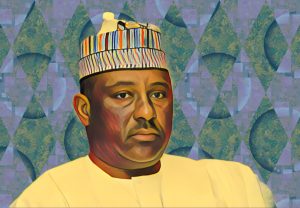
Alhaji Abdul Samad Rabiu, the Founder and Chairman of the BUA Group, is a prominent figure in the Nigerian business landscape. As of 2023, Forbes estimates his net worth at $6.7 billion, reflecting his significant impact across various sectors of the Nigerian economy. BUA Group, under Rabiu’s leadership, has become a conglomerate with interests in manufacturing, infrastructure, and agriculture, generating revenues exceeding $2.5 billion. In addition to his business acumen, Rabiu is known for his philanthropy and serves as the chairman of the Nigerian Bank of Industry (BOI).
One of the critical issues Rabiu is addressing is the soaring cost of building materials in Nigeria. He has made a commitment to reduce the price of cement from N5,500 to N3,500 per bag starting January 2024. This initiative is eagerly anticipated by Nigerians, who view it as a potential relief in the face of escalating construction costs.
Rabiu’s business journey began in 1988 with the establishment of BUA International Limited, initially focused on commodity trading. The company played a vital role in importing essential commodities like rice, edible oil, flour, and iron and steel. This venture marked the beginning of what would become a diversified business empire.
By 1990, BUA had expanded into the steel industry. The company entered into a contract with the government-owned Delta Steel Company, providing raw materials in exchange for finished steel products. This arrangement boosted BUA’s growth, leading to further expansion in steel production, including the importation of iron ore and the establishment of rolling mills in Nigeria.
In subsequent years, Rabiu steered BUA into new ventures. The group acquired Nigerian Oil Mills Limited, becoming the largest edible oil processing company in Nigeria. BUA also established two flour-milling plants in Lagos and Kano in 2005. By 2008, BUA had made a significant move in the sugar industry, commissioning the second-largest sugar refinery in sub-Saharan Africa, thus breaking an eight-year monopoly in the sector.
In 2009, BUA Group expanded into the cement industry, acquiring a controlling stake in a listed Cement Company in Northern Nigeria. This move was followed by the construction of a $900 million cement plant in Edo State, completed in early 2015.
Throughout his career, Rabiu has demonstrated a keen ability to identify and capitalize on business opportunities across diverse sectors. His commitment to reducing cement prices reflects not only his business acumen but also his responsiveness to the socio-economic challenges facing Nigerians. As the BUA Group continues to grow and diversify, Rabiu’s role as a key player in Nigeria’s economic landscape remains firmly established.
Aliko Dangote, Chairman, Dangote group
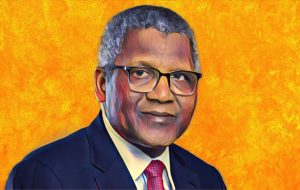
Aliko Dangote, renowned as Africa’s richest man and Chairman of the Dangote Group, stands at the forefront of a significant development in Nigeria’s energy sector. He is widely anticipated to play a pivotal role in alleviating the country’s long-standing energy deficiency. This expectation centers around his ambitious project, the 650,000 barrels per day (bpd) refinery complex located in Lagos. Set for full operation in the new year, this refinery is poised to be a transformative force in the petroleum industry.
The refinery, which is expected to significantly impact Nigeria’s oil and gas landscape, received its first shipment of crude oil in early December, marking a major milestone as it prepares for full-scale operations. This development is seen as a critical step towards self-sufficiency in petroleum products and is likely to have far-reaching implications for the national economy.
In addition to his ventures in the petroleum sector, there is growing anticipation that Dangote might follow in the footsteps of Abdul Samad Rabiu, Chairman of BUA Group, in addressing the pricing of cement. With Nigeria grappling with a severe housing deficit, there are high expectations for Dangote to leverage his influence in the cement industry to contribute to solving this challenge. Such a move would not only benefit consumers but also position Dangote as a more prominent partner to both the government and private sector in tackling critical national issues.
According to Forbes, Dangote’s real-time net worth as of November stands at $16.1 billion. At 66 years old, he has established himself as a self-made billionaire, with his wealth primarily rooted in cement and sugar industries. He founded and chairs Dangote Cement, the largest cement producer on the continent, with an impressive annual production capacity of 48.6 million metric tons and operations extending across several African countries.
Dangote’s business interests are not limited to cement and sugar alone. In March 2022, after years of development, his fertilizer plant in Nigeria began operations. This venture is another testament to his business acumen and commitment to contributing to Nigeria’s economic development.
Dangote’s distinction as the world’s richest black person and the 107th richest person globally underscores his significant impact on both the African and global economic landscapes. As he continues to expand his business empire, his role in shaping the economic future of Nigeria, particularly through the new refinery and his involvement in the cement industry, will be closely watched by both national and international observers.
As these individuals navigate the complexities of their respective roles, their collective efforts will shape Nigeria’s economic future. The year 2024 presents a unique opportunity for these leaders to demonstrate their commitment to fostering economic resilience and prosperity, setting the stage for a transformative era in Nigeria’s history.


